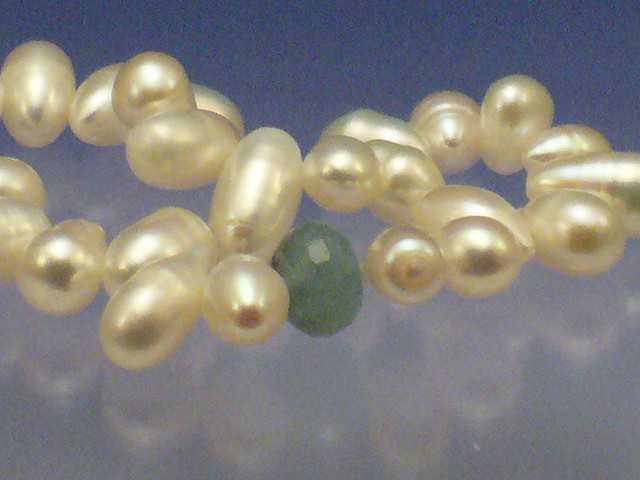FWP:
SETS
EYES {3,1}
PROPORTIONALITY: {6,4}
A lovely second line, isn't it? For a drop of water in the sea to become a pearl is quite hard enough-- {78,2} offers a vivid depiction of just how hard. (In the ghazal world, pearls are formed from drops of rain-water, not grains of sand.) And on this reading, for a drop not to become a pearl -- jo gauhar nah hu))aa thaa is phrased in an entirely negative way-- seems to be much higher and more difficult. This is Hali's reading, and other commentators agree, and it's certainly a satisfactory one.
But as usual with Ghalib, it's not the only one. We can construct from Ghalib's own verses an alternative line of thought in which expression is more valuable than latency. See for example {22,5}, in which the lament that does not reach the lip, and the drop that does not become the sea, seem to be in a state of lesser fulfillment (at least according to the main commentarial reading of the verse). Thus tears in the eyes might well be less fortunate than tears that have been shed and have turned to pearls. For an explicit metaphorical linking of the lover's tears with pearls, see {15,3}, in which the beloved contemplates the stringing of pearls, while (and also because?) the lover's tears are so numerous that the 'thread' of his glance is obscured. Why shouldn't the beloved string the lover's tear-pearls, just as she strings his drops of blood, pierced by her eyelashes, into coral prayer-beads in {10,2}? Wouldn't that be a destiny superior to their remaining unshed? And we know that pearls can be valuable in far more than a mere jewel-like way: the desolate lover's breast is described in {13,7} as a ruined treasure-house, stripped of all its former 'pearls of mystery'.
In short, as so often, we not only can have it both ways,
we must have it both ways; we have no choice about choosing. Ghalib forces
us to decide for ourselves which is to be taken as a recipient of favor: the
unshed tear in the eye, or the tear that becomes a (literal) pearl, or the
(shed) tear-pearl.

Hali:
It is an absolutely new and untouched and subtle thought. And he has expressed it with extreme clarity and excellence. If anybody doesn't understand it, the fault lies with that person's own mind. The claim is that to the extent that someone has a lofty courage, his help from the Unseen is proportional. And the proof is that the teardrop, which has found place in the eyes-- if its courage, when it was in the sea, had contented itself with becoming a pearl, then manifestly this rank (that is, of finding place in the eyes) would not have been attained.
==Urdu text: Yadgar-e Ghalib, p. 121